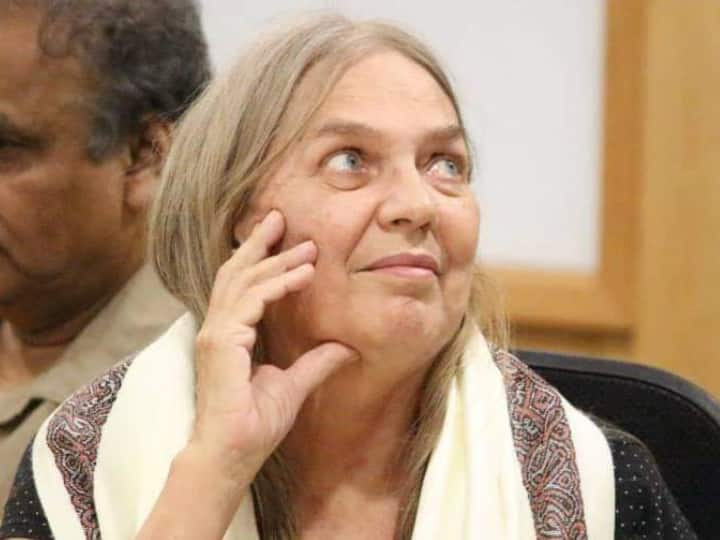
Gail Omvedt, Eleanor Zelliot and Rosalind O’Hanlon are the three women who made Phule and Ambedkar as touchable in academia. Before them, there could have been attempts to bring Phule and Ambedkar into academia by many. Indian university professors take western theory and philosophy to be more serious than any theory and philosophy produced in India including the writings of the Indian thinkers and philosophies that germinated in the social and political movement. Gail, Eleanor and Rosalind being American and British researchers and university professors respectively played a major role in taking Phule, Ambedkar and anti-caste movements to university classrooms and discussions, in the form of their books and articles. On Phule and Ambedkar, after the writings of Phule and Ambedkar, the books of Gail, Eleanor and Rosalind are primarily read by researchers and activists. With the works of Gail, Eleanor and Rosalind, working on Phule, Ambedkar, Kanshiram and other anti-caste philosophers/leaders is not a hurdle for the current generation researchers.
Phule dedicates his treatise Gulamgiri- ‘to the good people of the United States as a token of admiration for their sublime disinterested and self-sacrificing devotion to the cause of Negro slavery; and with an earnest desire that my countrymen may take their noble example as their guide in the emancipation of their Sudra brethren from the trammels of Brahmin thraldom’. (Phule: 1873).
Gail Omvedt came to India in 1970, after 97 years of Phule’s Gulamgiri, to collect notes on Phule and Shahu Maharaj for her PhD thesis Cultural Revolt in a Colonial Society: The Non-Brahman Movement in Western India. The thesis was submitted to the Sociology department of the University of California, Berkeley in 1973 i.e. 100 years after Phule’s Gulamgiri. The thesis was published as a book with the same title in 1976.
From last year’s protests for George Floyd, it was evident that there are ‘good people in the United States’ who are with the cause of the Blacks. What Phule expects in his dedication of Gulamgiri is that he is also looking for ‘good people’ in India who shall ‘emancipate Sudra [and ati-Shudra] brethren from the trammels of Brahmin thraldom’. I believe that Gail is both- one among those ‘good people of the United States’ and also ‘good people’ of India who understood Phule’s dedication and tried to live her best to the expectations of Phule; by actively participating in the anti-caste and social movements of Maharashtra.
I call Gail as Phule’s good people’ as she gave up her teaching appointments in the United States to join the anti-caste, workers and women’s movement in India and Maharashtra in particular. She had the ‘sublime disinterested and self sacrificing devotion’ in seeking the emancipation of the outcastes and women. Sublime disinterest is the formless sublime. In her writings and participation in the movements, by endorsing that the anti-caste visionaries and people participating are the protagonists of the anti-caste movement she strengthened the matter that is intrinsic to the form of anti-caste vision. Gail never made herself the protagonist in any manner which testified that she contributed with a self sacrificing devotion.
Gail Omvedt addressed the first convention of BAMCEF and was in conversation with BAMCEF and BSP founder Manyavar Kanshiram. On the 50th anniversary of Indian independence, in the Lok Sabha, Kanshiram borrowed Gail’s PhD work and argued that in the last 50 years, India did not take ‘cultural revolt in the colonial society’ seriously and also attempted to crush it down. Political leaders like Kanshiram who are interested in the emancipation of the outcastes with electoral politics, quoting from the PhD thesis of Gail exemplify that- cultural revolutions are intrinsic to political movements, particularly the anti-caste politics and that the research of Gail is not just to be bound in a book but is useful to the marginalised communities whose life is dependent on the expectation that socio-political movements and governments will do something good for them.
Gail did not stop her work with Phule. She worked on all the major anti-caste philosophers/thinkers and visions. She also worked on agrarian economy and women. Her writings are a testimony that each anti-caste philosopher/thinker and movement has a vision which is evolving in a specific context. Devoid of the context each of these visions has an appeal. All of these visions intersect with the single point agenda of no suffering of the human being.
Gail’s life and work is a tribute to Phule. It also honours Phule’s dedication of the Gulamgiri treatise.
Along with a few modern Indian thinkers’ writings, the writings of Gail Omvedt and few contemporary academics are primary to my PhD research. Very often, I read Gail on Phule. It is saddening that a writer I read primarily for my PhD is no more. It is also saddening that Gail is no more while there are new churnings in anti-caste politics and peasant/farmer politics. While I write this, the images of Gail Omvedt’s books in the book shelves of so many researchers in JNU are hitting me.
From the morning of 25 August to the early morning of 26 August my social media is filled with messages and tributes to Gail Omvedt, from all the adherents of various anti-caste movements and women’s movement testify that Gail’s selfless contribution has earned her deep love and admiration among various anti-caste movements and women’s movement.
Jai Bhim Hul Johar to Gail Omvedt for her selfless contribution to the anti-caste, workers and women’s movement.




